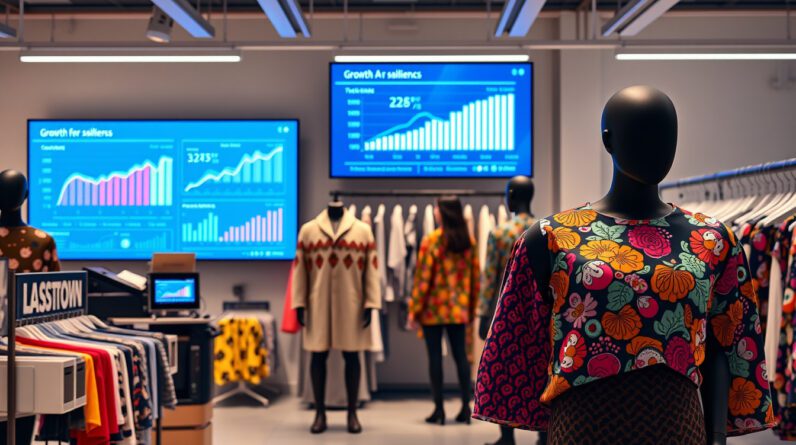
Fashion’s Sustainable Revolution: AI Transforms Recycled Car Materials
Driving Change: The Intersection of Fashion, Sustainability, and AI
The fashion industry, often criticized for its environmental impact, is undergoing a radical transformation. At the heart of this change lies a powerful trifecta: sustainability, artificial intelligence (AI), and the innovative use of recycled materials, particularly those sourced from end-of-life vehicles. This convergence is not merely a fleeting trend; it signifies a profound shift in how fashion is designed, manufactured, and consumed.
The Environmental Cost of Fast Fashion
To understand the significance of this transformation, we must first acknowledge the fashion industry’s environmental footprint. Fast fashion, characterized by rapid production cycles and fleeting trends, has come under intense scrutiny for its detrimental effects on the planet.
Consider these sobering statistics:
- The fashion industry is responsible for approximately 10% of global carbon emissions.
- Textile production is estimated to be the second-largest consumer of water globally.
- A significant portion of clothing ends up in landfills, contributing to pollution and waste.
These alarming figures highlight the urgent need for sustainable practices within the fashion ecosystem.
Recycled Car Materials: An Unexpected Sustainable Resource
While the concept of recycling is not new, the fashion industry is increasingly exploring unconventional materials to reduce its reliance on virgin resources. Enter recycled car materials – an unexpected yet surprisingly viable solution.
End-of-life vehicles present a significant waste management challenge. However, they also offer a wealth of reusable components, many of which can be repurposed for fashion applications.
Here are some examples of how car parts are being transformed into stylish and sustainable fashion pieces:
- Seatbelts: Known for their durability and strength, seatbelts are being woven into bags, belts, and even clothing.
- Airbags: The lightweight and resilient nature of airbags makes them suitable for creating jackets, backpacks, and accessories.
- Windshields: Laminated glass from windshields can be processed and used to create jewelry, buttons, and other decorative elements.
- Tires: Recycled rubber from tires can be incorporated into footwear, bags, and even outerwear for a unique and durable finish.
AI: The Catalyst for Sustainable Innovation
The integration of AI into this equation is nothing short of revolutionary. AI is empowering designers and manufacturers to leverage recycled car materials in ways that were previously unimaginable.
Here’s how AI is transforming the landscape:
- Material Identification and Sorting: AI-powered systems can efficiently identify and sort different types of car materials, streamlining the recycling process.
- Design Optimization: AI algorithms can analyze material properties and suggest innovative design solutions, maximizing the use of recycled components.
- Waste Reduction: AI-powered cutting and sewing technologies minimize material waste during production.
- Supply Chain Transparency: AI can enhance supply chain transparency, ensuring the ethical and sustainable sourcing of recycled materials.
The Rise of Sustainable Fashion Brands
The convergence of recycled car materials and AI is not merely a futuristic concept; it’s a reality being embraced by a growing number of fashion brands committed to sustainability.
Several pioneering brands are leading the way, showcasing the immense potential of this innovative approach. These brands are transforming everything from airbags and seatbelts into stylish and eco-conscious fashion pieces, proving that sustainability can be both stylish and impactful.
The Future of Fashion: Circular and Sustainable
The fashion industry’s embrace of AI and recycled car materials represents a significant step towards a more circular and sustainable future. This approach not only reduces the industry’s reliance on virgin resources but also promotes the concept of upcycling – transforming waste materials into products of higher value.
Embracing the Change: Consumers as Agents of Sustainability
As consumers become increasingly aware of the environmental and ethical implications of their fashion choices, the demand for sustainable and ethically produced clothing is on the rise. By supporting brands that prioritize recycled materials and innovative manufacturing processes, consumers can actively participate in shaping a more responsible and sustainable fashion industry.
Conclusion: Driving Towards a Sustainable Fashion Future
The fashion industry is at a pivotal crossroads. The traditional, linear model of take-make-dispose is being challenged by a more circular and sustainable approach, one that embraces innovation, resourcefulness, and a deep respect for our planet.
The integration of AI and the use of recycled car materials are not just trends; they represent a fundamental shift in how we think about fashion. As technology continues to evolve and consumer awareness grows, we can envision a future where fashion is synonymous with sustainability, innovation, and responsible consumption.





